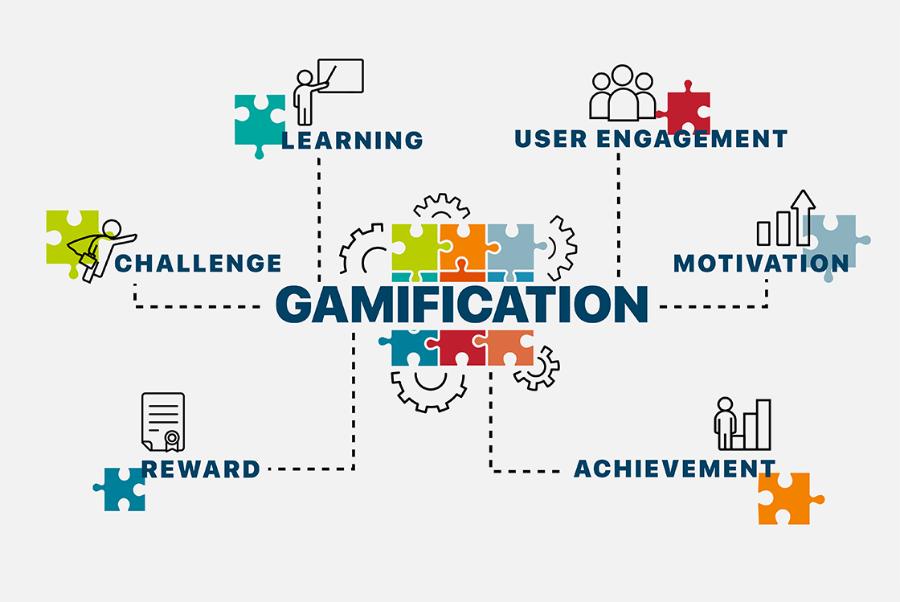Best Selling Products
What to Prepare Before the New Semester to Achieve High Efficiency and Avoid Old Mistakes?
Nội dung
- 1. Review and Lessons Learned from the Last Semester
- 2. Set Clear Goals for the New Semester
- 3. Organize Your Study Schedule and Manage Your Time Effectively
- 4. Create a Comfortable Learning Space and Optimize the Learning Environment
- 5. Enhance Learning and Practical Skills
- 6. Maintain Mental and Physical Health
- 7. Build Good Relationships With Teachers and Friends
- 8. Participate in Extracurricular Activities
- 9. Create Learning Motivation
- 10. Prepare Well For The Exam
- 11. Always Learn and Develop Yourself
How can students prepare so that the new semester doesn't become a "draft"? Discover effective study strategies to achieve high performance and personal growth this semester.

Every new semester is an opportunity for students to build a solid foundation for their learning and personal development journey. However, not everyone knows how to prepare well to make the most of their time and energy throughout the semester. To avoid the situation where the semester becomes a "draft", students need to have effective learning strategies from the beginning. Let's explore with sadesign the secrets to help you best prepare for the new semester, in order to achieve excellent learning results.
1. Review and Lessons Learned from the Last Semester
(2).jpg)
Take time to review your grades, teacher comments, and accomplishments from the past semester.
Objectively evaluate which subjects you did well in and which ones need improvement.
Cause analysis:
Find out the reasons for poor results. It could be due to ineffective study methods, lack of concentration, or poor time management.
Write down on paper the lessons learned and things you want to change for the new semester.
Action Plan:
Based on the above analysis, create a specific action plan to overcome weaknesses and promote strengths.
Set clear and measurable goals for the new semester.
2. Set Clear Goals for the New Semester
Before entering a new semester, the first and most important thing is to determine specific learning goals. Goals not only help you have a clear direction but also create motivation to overcome difficulties throughout the learning process.
Short-term goals : These are goals that you can accomplish in a short period of time, such as achieving a certain grade in a class, completing an assignment on time, or improving a specific skill like giving a presentation or writing an essay.
Long-term goals : These are larger goals, such as achieving excellent grades throughout the semester, participating in meaningful extracurricular activities, or preparing well for final exams. Setting long-term goals helps you see the end goal and keep you from getting lost in the learning process.
SMART Goals: Make sure your goals are SMART: Specific, Measurable, Achievable, Relevant, and Time-bound. For example, instead of saying "I want to do better in school," say "I want to get an 8.0 GPA this semester."
Break down your goals: Break down large goals into smaller, more achievable goals. This will make it easier to get started and stay motivated throughout the semester.
Once you have set goals, breaking them down into smaller steps will make it easier to track and measure your progress. This will not only help you feel more motivated, but will also help you avoid feeling lost and discouraged.
3. Organize Your Study Schedule and Manage Your Time Effectively
One of the reasons why many students’ semesters are a “draft” is because of a lack of organization in time management. The new semester will be much more effective if you know how to allocate your time reasonably.
.jpg)
Create a detailed study plan : Create a clear study schedule at the beginning of the semester, including the time for each subject, exams, tests, and extracurricular activities. A study schedule helps you avoid last-minute cramming and ensures that you have enough time to study thoroughly.
Make a detailed schedule:
Make a detailed schedule, including time for studying, resting, and extracurricular activities.
Make sure you spend enough time on each subject and have enough breaks to recharge your batteries.
Prioritize tasks: Prioritize important and urgent tasks first. Use time management tools like Google Calendar, Trello, or reminder apps to help you keep track of your progress.
Stick to a schedule: Try to stick to your schedule strictly. This will help you develop good study habits and avoid leaving things until the last minute.
Break it down : Don’t try to do everything at once. Break down your study tasks into smaller chunks, such as studying a section of the curriculum each day, doing a small assignment, or reviewing a section of material for an exam. Breaking it down helps you avoid feeling overwhelmed and makes it easier to complete each step.
Prioritize important tasks : Don't let unimportant tasks take up too much of your time. Learn to prioritize tasks to complete first, especially difficult subjects or important projects.
4. Create a Comfortable Learning Space and Optimize the Learning Environment
A conducive study environment will greatly affect your productivity. Studying in a comfortable, clean and quiet space will help you concentrate better and minimize distractions.
Choose a quiet study space : If you study at home, find a quiet and airy study corner. Avoid studying near places with a lot of people or distractions such as TV, phones or games.
Arrange your study table neatly : A neat study table will help you easily find study materials and create a comfortable feeling every time you sit down to study. Make sure your study space is always clean and fully equipped with necessary items such as computers, books, pens.
Create a study habit : Try to study at fixed times of the day, create a study habit for your body. Once it becomes a habit, you will not feel tired or pressured when you start studying.
5. Enhance Learning and Practical Skills
One of the key factors to making your semester a success is the ability to study effectively. Here are some skills you can practice to optimize your learning process.
Practice your note-taking skills : Smart note-taking helps you review your lessons and understand the content better. Don’t just write down what the teacher says, but focus on the important points and core knowledge. Use note-taking methods such as mind maps or summaries to enhance your ability to absorb and remember.
Use active learning : Instead of just re-reading the material, try using active learning by asking yourself questions and answering them about what you have learned. This will help you consolidate and deepen your understanding of the lesson.
Practice and review regularly : Don’t let your learning stop at theory. Take the initiative to take tests, practice exercises and review regularly to consolidate your knowledge. Practice helps you apply theory to reality and gain a deeper understanding of concepts.
Explore study methods: Learn about different study methods like mind mapping, Cornell note-taking, or the Pomodoro method. Experiment with different methods to find what works best for you.
Study Groups: Join study groups to exchange knowledge and support each other. Study groups help you gain a deeper understanding of knowledge and create motivation to study.
Use technology: Use online learning apps and software to support your studies. Apps like Quizlet, Coursera, or Khan Academy can help you study more effectively and have fun.
6. Maintain Mental and Physical Health
One of the most important things to consider when preparing for a new semester is staying healthy. A healthy body will help you study more effectively and reduce stress throughout the semester.
(1).jpg)
Proper Diet : Make sure you eat enough nutrients to fuel your body. Include foods rich in vitamins, minerals and proteins to stay healthy and increase concentration while studying.
Exercise regularly : Exercise not only helps your body stay healthy but also helps you relieve stress, improve your mood and improve your learning efficiency. You can join gym classes, yoga or simply go for a walk to relax your mind.
Get enough sleep and on time : Sleep is an important factor for the body and mind to rest and recover. Try to get 7-8 hours of sleep every day so that your body has enough energy for an effective study day.
7. Build Good Relationships With Teachers and Friends
Good relationships with teachers and friends not only help you feel more comfortable and happy in the school environment, but also bring many benefits to your learning and personal development.
Interact with teachers:
Ask questions and join the discussion:
Feel free to ask questions if you have any concerns about the lecture or participate in class discussions.
Not only does this help you understand the lesson more deeply, it also shows your interest in the subject.
For example, if your teacher explains a concept that is difficult to understand, ask for clarification.
Seek help:
Don't hesitate to seek help from your teacher when you have difficulty in your studies.
Teachers are always willing to support students and will help you find solutions to your problems.
You can make an appointment to meet with your teacher outside of class hours and discuss any problems you are having.
.jpg)
Support friends:
Help with studies and other activities:
Share your knowledge and experience with your friends.
Help your friends when they have difficulty in their studies or extracurricular activities.
For example, you can study with friends in groups, solve homework, or participate in joint projects.
Building a positive learning environment:
Create a fun, friendly and supportive learning environment.
Encourage and motivate friends to study together.
Avoid negative behaviors such as gossiping or criticizing your friends.
8. Participate in Extracurricular Activities
Extracurricular activities are a great opportunity for you to develop yourself comprehensively and expand your relationships.
Skill Development:
Join a club or team:
Join academic, artistic, sports, or volunteer clubs.
This helps you practice soft skills such as communication, teamwork, leadership, and problem solving.
For example, join a debate club to practice critical thinking and reasoning skills, or join a basketball team to practice fitness and team spirit.
Volunteer activities:
Participating in volunteer activities helps to promote the spirit of mutual love and expand many good relationships.
Expanding relationships:
Make friends with people who share your interests:
Participating in extracurricular activities helps you make friends with people who share your interests and passions.
This is your chance to expand your social network and find companions.
Expand your social network:
Expand your relationships to the world outside of your academic environment, so you will gain more social knowledge.
Stress relief:
Create balance in life:
Participating in extracurricular activities helps you relieve stress after stressful hours of studying.
This helps you create a balance between studying and recreational activities, thereby improving learning efficiency.
9. Create Learning Motivation
Motivation is an important factor in helping you maintain your efforts and achieve success in your studies.
Find inspiration:
Read books, watch movies, listen to success stories:
Read books, watch movies, or listen to stories of successful people to find inspiration.
These stories will help you believe in your abilities and give you more motivation to try.
Set a successful example:
Find a successful person you admire and set them as a role model.
Observe and learn from their experiences and lessons.
Reward yourself:
Reward for achieving goals:
Set small goals and reward yourself when you achieve them.
This will help you feel satisfied with your efforts and give you more motivation to keep trying.
Stay positive:
Believe in your ability:
Always believe in your abilities and stay optimistic in every situation.
Remember, failure is just part of the learning process and an opportunity for you to gain experience.
10. Prepare Well For The Exam
Good preparation for exams is the key to achieving high academic results.
Review regularly:
Review knowledge regularly:
Review knowledge regularly, do not wait until close to the exam to start.
Break down the amount of knowledge to review effectively.
Break down knowledge to review:
Make a detailed review plan, divide the amount of knowledge into small parts to review each part, helping to avoid overloading when studying.
Do exercises and practice tests:
Get familiar with the test format:
Do lots of exercises and practice tests to get familiar with the format and practice your test-taking skills.
This will help you feel more confident when you take the official exam.
Practice test-taking skills:
When doing a practice test, calculate the time to do it, this will help you get used to controlling time when taking the real test.
Keep your spirits up:
Rest and relaxation:
Before the exam day, take some time to rest and relax to keep your mind at ease.
Don't worry too much, trust your own preparation.
11. Always Learn and Develop Yourself
Learning is a continuous and never-ending process.
Read books and specialized documents:
Expand your knowledge:
Read books and specialized documents to expand knowledge and improve qualifications.
This will help you stay updated with the latest knowledge in your field.
Attend courses and seminars:
Update new knowledge:
Attend courses and seminars to update your knowledge and learn from successful people.
Taking courses helps create more good relationships.
Learn from people around you:
From friends, teachers, experienced people:
Learn from friends, teachers, and experienced people.
Always open to advice and suggestions.
The new semester is an opportunity for you to change and improve your academic performance. Being well prepared from the beginning will help you avoid a "draft" semester, but instead, a productive and successful semester. Apply effective study strategies, create good habits, and maintain your health to achieve great results this semester. With careful preparation, you are sure to have a successful and meaningful semester!












































